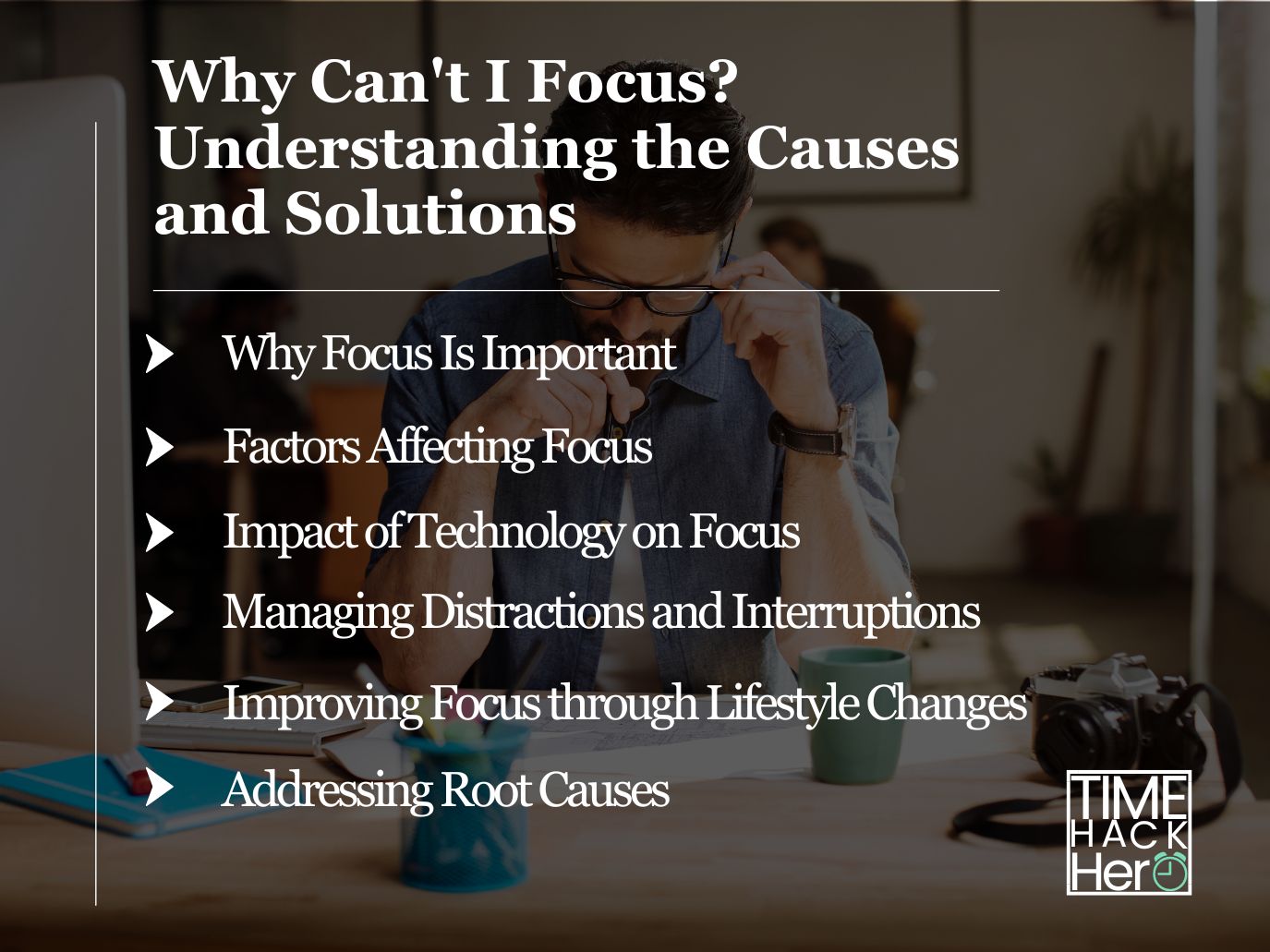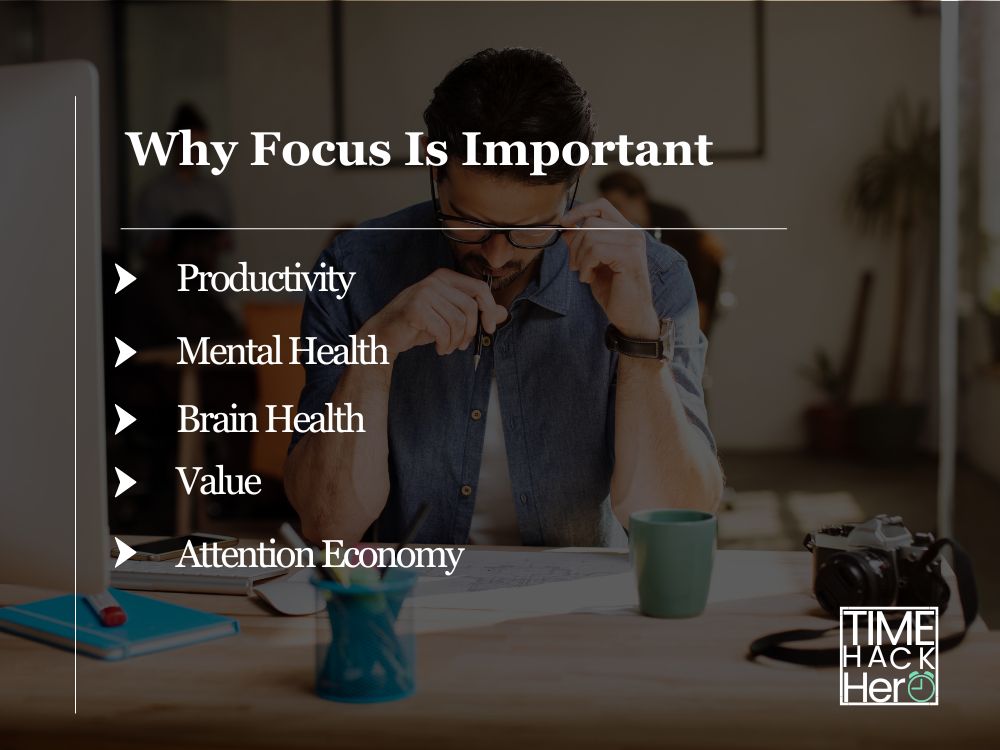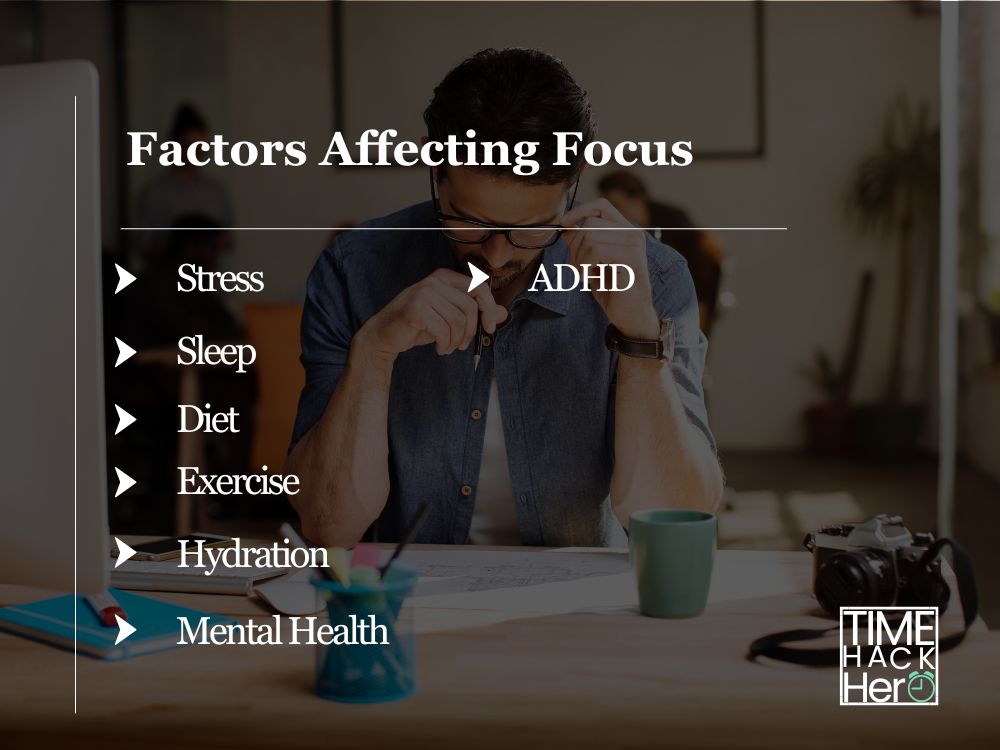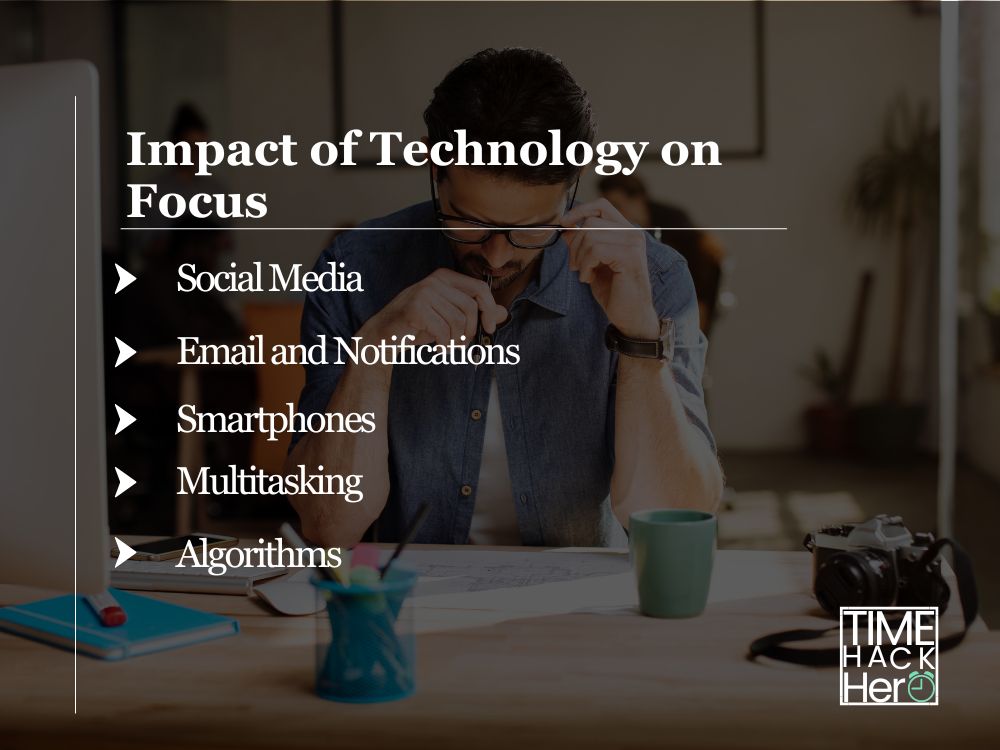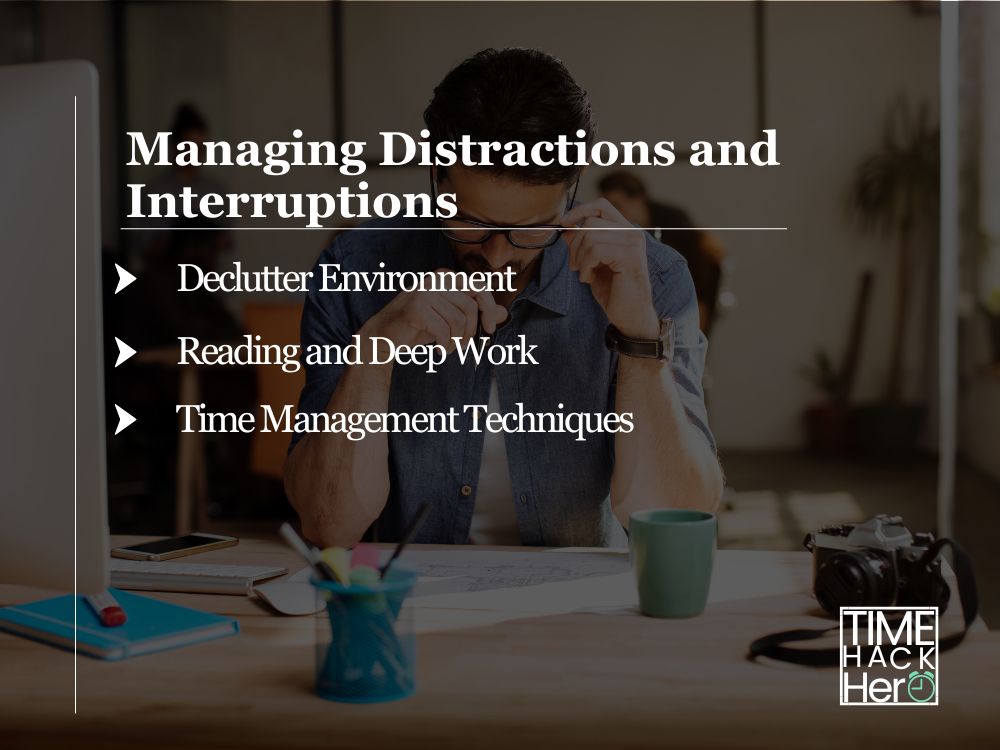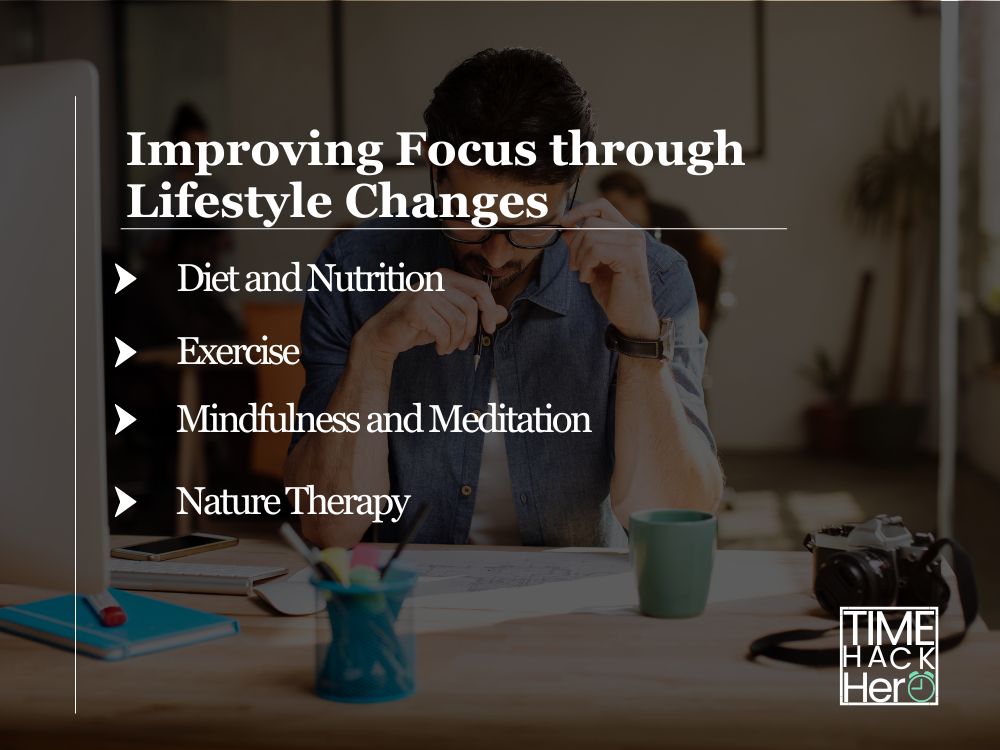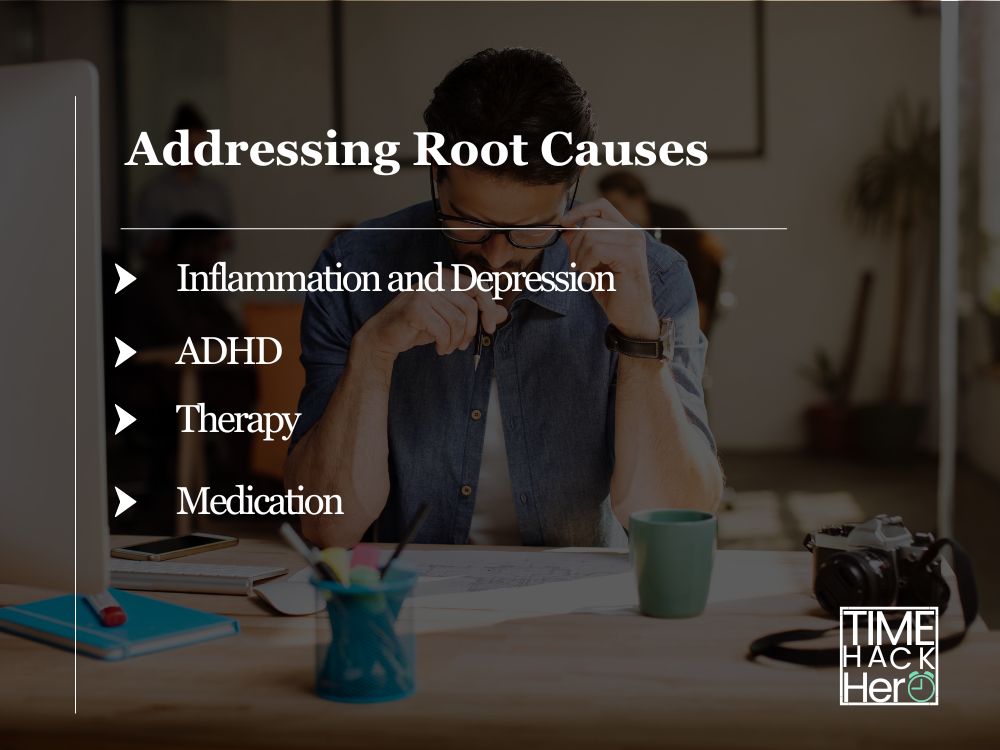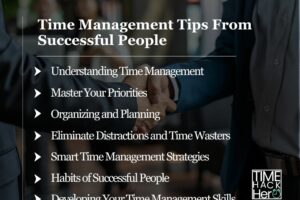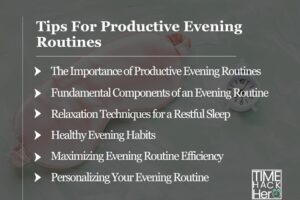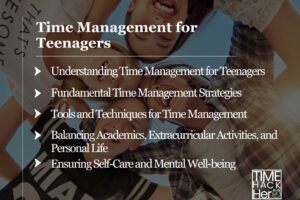In today’s fast-paced world, it’s not uncommon to find ourselves struggling to concentrate and maintain focus. The inability to focus can be attributed to various factors, ranging from mental and physical health issues to lifestyle choices and external distractions. Understanding the root cause of this problem is essential in addressing it effectively and improving our overall productivity and well-being.
One possible reason behind a lack of focus can involve inadequate sleep or poor sleep quality. Sleep deprivation can significantly impact brain function, rendering it challenging to remain attentive and concentrate on tasks. Additionally, certain medical conditions, such as ADHD or stress-related disorders, may contribute to a diminished attention span. Addressing these underlying issues is crucial in regaining one’s ability to focus.
Apart from these factors, lifestyle choices like diet, exercise, and the environment in which we work or study play a significant role in our ability to concentrate. Adopting healthier habits, such as engaging in regular physical activity, consuming a balanced diet, and minimizing external distractions, can significantly enhance focus.
Table of Contents
Why Focus Is Important
Productivity
A strong ability to focus enables one to fully engage in a task without distractions occupying their mental space. This results in increased productivity, as being in the present moment allows for optimal learning and information absorption.
Mental Health
Maintaining focus also plays a crucial role in mental health. When we can concentrate, we’re better equipped to manage stress and maintain a sense of well-being. Struggles with focus can lead to feelings of frustration, anxiety, and even depression.
Brain Health
Our brain constantly processes information, going back and forth between past, present, and future thoughts. Achieving focus strengthens the brain, as concentrating on one task at a time supports healthy neural pathways and cognitive development.
Value
Focus adds value to the work we do, and the tasks we accomplish. Being attentive and deliberate in our actions ensures quality and effectiveness in our professional and personal lives.
Attention Economy
In our modern world, the attention economy plays a prominent role. The ability to focus helps us better navigate through the myriad of information and distractions available, ensuring we allocate our time and energy to the most important tasks.
Factors Affecting Focus
Stress
Stress can be a significant factor in your ability to concentrate. When your mind is preoccupied with worrying thoughts, it can be difficult to focus on the task at hand. It is essential to find ways to manage stress levels, such as:
- practicing relaxation techniques
- setting manageable goals
- taking breaks
Sleep
A good night’s sleep is key to maintaining focus and concentration. Adults should aim for 7-8 hours of sleep each night to ensure optimal cognitive function. Incorporate a relaxing bedtime routine and prioritize a consistent sleep schedule for better focus.
Diet
Diet plays a critical role in brain function. A well-balanced, nutritious diet helps support focus and concentration. Key nutrients include:
- Essential fatty acids: found in fatty fish, nuts, and seeds
- Protein: sources include lean meats, eggs, and legumes, which provide amino acids crucial for brain chemicals
Exercise
Regular aerobic exercise, such as brisk walking, can improve focus. Aim for at least 150 minutes per week of moderate-intensity activity. Exercise increases blood flow to the brain and helps maintain healthy brain function.
Hydration
Staying hydrated is essential for optimal brain function. Drinking enough water throughout the day can help maintain focus. Try drinking very cold or flavored water for stimulating effects.
Mental Health
Underlying mental health conditions can negatively impact focus and concentration. It is essential to address and treat any mental health issues, such as anxiety or depression, which can lead to difficulty concentrating. Seeking professional help is recommended.
ADHD
Attention Deficit Hyperactivity Disorder (ADHD) can result in a short attention span and difficulty focusing. This condition affects both children and adults, and getting properly diagnosed and treated is essential for improving focus and overall well-being.
Impact of Technology on Focus
Social Media
Social media platforms are designed to grab and hold our attention. The constant flow of new content and the rewarding feeling of receiving likes, comments, and shares can make it difficult for users to focus on other tasks. Spending too much time on social media often leads to decreased focus and productivity in other aspects of life.
Email and Notifications
Emails and app notifications are constant distractions that impact our ability to stay focused. Each time we receive a notification, we feel compelled to check and respond to it, interrupting our flow of work. This creates a constant cycle of stimulation and disruption.
Smartphones
Smartphones have become an indispensable part of our lives, offering easy access to communication, entertainment, and information. However, they also contribute to our inability to focus. The urge to check our phones frequently, even during important tasks, leads to fragmented attention and reduced productivity.
Multitasking
Many people believe they can effectively multitask – performing multiple tasks simultaneously. However, studies have shown that the human brain is not built for multitasking. Attempting to do so often results in reduced focus and impaired performance on individual tasks. Constantly juggling tasks can make it harder to maintain sustained focus on any one activity.
Algorithms
Internet platforms use sophisticated algorithms to curate content tailored to our preferences. These algorithms are designed to maximize engagement, often making it difficult for users to tear themselves away from the screen. As a result, we may struggle to maintain focus on tasks that are not as immediately rewarding as the curated content.
Managing Distractions and Interruptions
Declutter Environment
A clean and organized workspace can help reduce distractions and improve focus. Remove unnecessary items from your work area and keep only the essentials. This can help create a clutter-free zone, minimizing the chances of getting distracted.
Reading and Deep Work
Deep work, a concept presented by Cal Newport, emphasizes the need to engage in cognitively demanding tasks without distractions. When reading or engaging in deep work, consider:
- Using noise-canceling headphones to block out ambient noises
- Placing your phone and other devices in another room or on silent mode
- Using apps such as Freedom to block distracting websites or applications
By setting up a distraction-free environment for reading and deep work, you increase the likelihood of maintaining prolonged focus.
Time Management Techniques
Implementing time management techniques can help manage interruptions and maintain focus. Some methods include:
- Keep an Interrupters Log: Record the interruptions you experience and analyze patterns. This can help identify frequent distractions and provide a basis for addressing them.
- Ready-to-Resume plan: Create a plan to help you refocus after an interruption, such as a brief to-do list or outline for the task at hand. This gives your brain the cognitive closure it needs to reduce attention residue, allowing you to perform at your full capacity.
- Reduce multitasking: Focusing on one task at a time can help avoid splitting attention and maintain concentration. Simplify your to-do list and prioritize tasks to increase productivity.
By combining these strategies, you can create a more manageable workflow, ultimately leading to better focus and reduced distractions.
Improving Focus through Lifestyle Changes
Diet and Nutrition
A Mediterranean-style diet has been shown to support brain health and can improve your ability to focus. This diet emphasizes the following food groups:
- Fruits and vegetables
- Whole grains
- Legumes and nuts
- Moderate amounts of fish and poultry
Make sure to stay hydrated, as dehydration can cause a lack of concentration. Coffee or other caffeinated beverages consumed in small doses can positively impact focus as well.
Exercise
Aim for at least 150 minutes of moderate aerobic exercise each week, like brisk walking. Regular physical activity has been linked to better cognitive function and improved focus. Exercise can also help reduce stress, which can interfere with concentration.
Mindfulness and Meditation
Practicing mindfulness and meditation can help improve focus by promoting attention control and minimizing distractions. A few techniques to consider are:
- Focused breathing: Focus on your breath and observe inhalation and exhalation without judgment.
- Body scan: Gradually move your attention through different parts of your body, noticing any tension or sensations.
- Loving-kindness meditation: Silently repeat phrases of well-wishing for yourself and others.
Nature Therapy
Spending time in nature or even just bringing natural elements into your environment can boost concentration. Studies show that exposure to nature and natural light can enhance cognitive abilities and mental wellbeing. Consider activities like:
- Taking a walk in a park or natural area during breaks
- Incorporating plants into your workspace
- Allowing for natural light to enter your work area
Addressing Root Causes
Inflammation and Depression
Inflammation may cause difficulty in focusing, as it can affect your cognitive abilities. Research suggests that increased inflammation levels can be linked to mental health issues like depression. Therefore, it might be helpful to explore anti-inflammatory diets and lifestyle changes to improve your focus.
ADHD
Attention Deficit Hyperactivity Disorder (ADHD) may be another root cause for lack of focus. If you suspect that ADHD could be a factor, consult a medical professional for diagnosis and guidance on treatment. Various approaches can be employed to manage ADHD symptoms, such as behavioral therapy and medication.
Therapy
Various therapeutic approaches could be beneficial in addressing focus issues. Cognitive Behavioral Therapy (CBT), for example, can provide effective strategies for managing distractions and improving concentration skills. Counseling is another option that may help individuals understand and work through the root causes of their lack of focus.
Medication
In certain cases, medications might be prescribed for addressing difficulties in focusing. For instance, stimulant medications are often prescribed for ADHD to help increase attention and reduce impulsivity. Additionally, certain medications might be recommended for depression and anxiety, which can negatively impact focus. Be sure to consult a healthcare professional before considering any medication.
Conclusion
In conclusion, there are several factors that can contribute to a lack of focus and difficulty concentrating. These may include:
- Medical conditions, such as ADHD or other mental health issues
- A noisy or distracting environment
- Vague goals and objectives, causing a lack of motivation
To address these issues and improve one’s ability to focus, consider the following strategies:
- Evaluate your health: If you suspect a medical condition might be affecting your focus, consult a healthcare professional for a proper diagnosis and treatment plan.
- Create a suitable environment: Find or create an environment that is quiet, free of distractions, and conducive to concentration. This might involve using noise-cancelling headphones, working in a separate room, or setting specific hours for focused work.
- Set clear goals: Establish specific, measurable, achievable, relevant, and time-bound (SMART) goals in order to provide purpose and direction, making it easier to concentrate on tasks at hand.
Remember that building and maintaining focus is an ongoing process that requires practice and consistency. By addressing the factors that contribute to a lack of focus and implementing strategies to improve concentration, you will be better equipped to tackle your daily tasks and achieve your goals.

